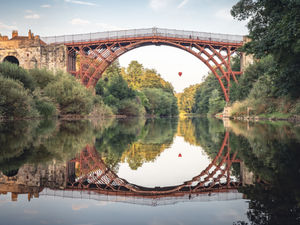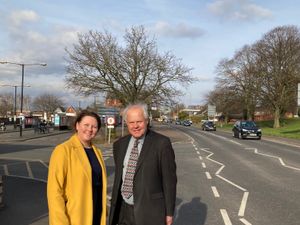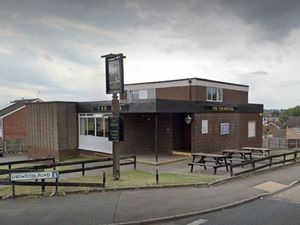Time to get House of Lords in order
Amid deep and growing resentment from the public, the Lords must get their House in order, urgently.
It is of a sense of urgency that Lord Cormack speaks as he outlines the ideas his small but knowledgeable group of peers, from political parties and of none, will discuss as they try to restore faith in Parliament's upper house.
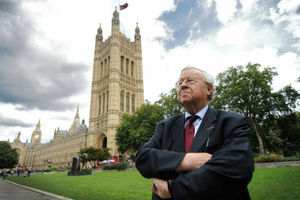
The former MP for South Staffordshire has a deep affection for Parliament and its traditions – even the way he pronounces it 'Parl-ia-ment' sounds as though it belongs to a more refined age.
That affection, however, is not blind to the scandal that rocked it earlier this year – when Baron Sewel, who oversaw standards in the Lords, was caught on camera allegedly snorting cocaine during a party with prostitutes – and to the unappealing bunch of political loyalists from the establishment that made up a large number of the 45 new peers sent to the already overflowing red benches.
As chairman of the Campaign For an Effective Second Chamber, that is precisely what Lord Cormack plans to tackle.
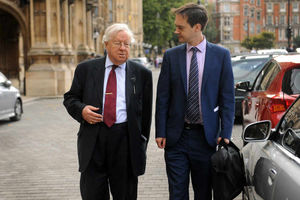
The Electoral Reform Society recently revealed research showing there were 30 peers who did not speak even once over the course of the last Parliament but still claimed their allowances. It demands 'serious' reform and an elected upper house.
Lord Cormack does not dispute the need for change but does think we have to appoint, rather than elect, the House of Lords.
"An elected house would be a replication of the House of Commons," he says. "It would lead to tension and gridlock as in America from time to time and would not be a prescription for good government. Nor would it include independents.
"We have some 200 peers not affiliated to any political party, like Tanni Grey-Thompson, the athlete. They would never be elected. You occasionally get the odd maverick election like we had in Wyre Forest (Independent Dr Richard Taylor served two terms as an MP). The answer is to have an appointed chamber but one that is significantly reformed."
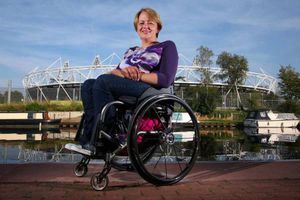
Part of that reform already exists. Last year a law was passed that allowed peers to retire.
"It was not possible for peers to retire but now we have over 30 who retired in the last year," Lord Cormack says.
Far from the epitome of British tradition, its ermine-clad members are fast earning the contempt of the British public.
Of course it is only a few bad apples that let the rest down.
This newspaper has fond memories of the likes of the late Lord Bilston, Dennis Turner, a Black Country 'mon' to his dying day who never forgot he was a servant of the people.
The same can be said for the Wolves vice-president Baroness Heyhoe Flint and the former South Staffordshire MP Lord Cormack, who tells this newspaper today how he believes the Lords can be saved from itself.
It is easy in a democracy to believe that elections are the answer.
But the House of Lords should be a place for those who have proved themselves in some way, either in politics, business, sport or some other aspect of public life, to use their expertise and knowledge to shape our laws.
It does not need to be a carbon copy of the Commons, which rightly has the ultimate say on our laws anyway, but all too often descends into pointless political point-scoring and sound-bite statements.
The problem is that the second chamber is being stuffed with cronies, time-servers and others who are there merely to boost the numbers and ensure the government of the day gets its way or, in the case of the Liberal Democrats, that they are not forced to suffer their near-oblivion at the ballot box.
Lord Cormack is a man who is fiercely proud of Parliament and all its traditions but he does not allow that to cloud his eyes to the need for urgent and serious change.
David Cameron will, of course, be reluctant to do so.
After all, the Lords as they stand cannot be cut by the will of the people the same way his slender, albeit hard-earned, majority of 12 can in a few years.
But after the expenses scandal, the allegations that led to the resignation of Baron Sewel and the less-than-impressive list of new peers joining the red benches, the Lords are certainly in danger of losing the respect of the people they serve.
Lord Cormack is absolutely the right person to lead the campaign for the second chamber to be effective.
We hope that whatever he and his colleagues come up with will make the Lords precisely that.
"The House of Lords has the power to expel those who do not behave as they should. That still leaves a large house.
"The campaign has appointed a small group of peers from all parties and crossbenchers to examine the proposals and come up with others to present a report.
"As the chairman I must not pre-empt discussions. But I can tell you some of things we will look at. One will be whether there should be a mandatory retirement age."
A suggestion put forward by Labour was that someone should retire by the end of the Parliament in which they reach the age of 80. But there is a problem there - people who are still, as Lord Cormack puts it 'intellectually vigorous and make a contribution'.
"People do think that is too crude a solution," he says. "We need to look at it. There are some members who are not yet in their 80s who are neither vigorous nor active. There are some people who do not play a significant role in the chamber but do on committees.
"But there are those who come very occasionally and do not make a contribution and those who come only to vote. We need to address all that."
One of the biggest problems facing the unelected Lords is that they vastly outnumber the elected MPs – 826 to 650.
"We need a House of Lords that is no bigger than the House of Commons," Lord Cormack says.
"By the time of the next Parliament, if Mr Cameron's pledge to reduce the size of the Commons is honoured, there will be 600 MPs. The House of Lords should not be bigger and it would be sensible to agree a cap on numbers. There are two solutions that help. You must not stop new people coming in. I make no comment on the recent list which has not, save with a few exceptions, thrilled me. But you must not either stop an infusion of new talent, nor prevent the Prime Minister having the ability to nominate. You should look at new peerages. The title can go on for life but not carry the automatic right to sit in the House of Lords.
"I think a defined period would be 15, 20 or 25 years. I'm not being more precise because it's one of the things the committee will look at. Or it could be until the peer is 80, 85 or whatever.
"That would definitely deal with the absenteeism. No-one would choose someone who never makes a contribution."
Lord Cormack saw the problem of the overcrowded Lords coming, even when he was a backbench MP, following Margaret Thatcher's landslide 1983 election victory.
"Way back in 1984 I introduced a Private Member's Bill which would have restricted the number of hereditary peers to 150," Lord Cormack says.
"I spoke to Mrs Thatcher and said we have an overwhelming built in Tory majority who formed a great majority of the Lords. I said 'you have a great majority now but when a Labour prime minister gets a majority like your, there will be a totally indefensible position'.
"She didn't want to bother with it, which was a great pity. She was a great prime minister but she was weak on constitutional issues. It went away and when Tony Blair did get the overwhelming Labour majority in 1997 he said they would immediately implement reform and got rid of all but 90 hereditary peers. And he appointed a significant number of life peers to beef up the Labour representation, which was entirely reasonable. Then we had the coalition."
Former deputy prime minister and Liberal Democrat leader Nick Clegg wanted the second chamber to be made entirely elected, like the American senate, as part of a raft of measures aimed at reforming British democracy and introducing proportional representation. Lord Cormack finds it ironic how the number of new peers alone outnumbers the Lib Dems who kept their seats in May's General Election.
"In spite of Mr Clegg's objection he did not refrain from sending people here," he chuckles.
"We had the dissolution honours that produced another 45 peers but the Tory party only increases its net membership by seven. I find it incomprehensible there should another 11 Lib Dems. We now have more new Lib Dem peers than we have elected Lib Dem MPs. The Lib Dem strength in the House of Lords is now 113, which is absurd. If the Lib Dems believe in proportional representation and all the things they protest about, they should be reducing their own numbers by retirements to the 60 or so they would be proportionally entitled to. But I think that is highly unlikely.
"The Lib Dems should have retired at least 11 of their number so they remained on even numbers."
He does not have much to say about the individuals on the list of 45 of his new colleagues.
"Mr Cameron's latest list has names that everyone would welcome, such as William Hague," Lord Cormack says. "But there are others whose appointment is a little less universally accepted. I won't say more than that."
He is far more concerned with preventing any other big lists of peers being drawn up.
"Before any other significant list is produced we should reach a consensus on how we set about reform," he says.
"The House has been respected for its debates on the issues of the day. There is now, fanned by articles in the press, a public perception that we really must put our house in order. And we must. It has contributed much over the years and I want to see it continue to do that. It won't, unless we come up with some solutions. If the solution was retirement at a particular age, clearly that would affect me but I would accept that. If the Labour party proposal is accepted that peers retire after the Parliament in which they turn 80 then I would go in 2020.
"But I won't pre-empt discussions of my group. These are merely some of the things we will inevitably have to look at."
One of the biggest complaints about the Lords from the public is, because they are not elected, they are out of touch. Lord Cormack disagrees.
"I don't think I lost touch with people when I stopped being the MP for South Staffordshire. I never make a speech in the House of Lords without receiving comments from members of the public. And whenever we are debating controversial issues most of get a reasonable postbag, not as big as when I was the MP for South Staffs, but people who have heard us debating something. I have been outspoken on the issue of on shore windfarms. I get a significant correspondence on that. We're not out of touch. Most of us play a part in the charitable world as well."
Having set up his committee of peers they will now discuss and work on a series of options, presenting them to the 200-strong members of the Campaign for an Effective Second Chamber in early November, with debates expected in the Lords before Christmas.
That is a short timetable for what could be a fundamental change to one of the great British institutions.
"There is no sense of panic but a sense of urgency," Lord Cormack explains. "Panic is when leading politicians suddenly get the wind up over things like the Scottish independence referendum."
And are peers the ones to put their own house in order?
"We are all equal and we all know who is making a real contribution and who is not," he says.
"If we do this business of numbers and selection at the beginning of each Parliament that will sort it out. The one thing you don't want to do is give extra power to the party machine."

